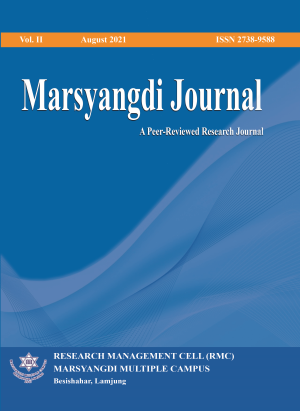Role of Language in Shaping Cultural Identity
DOI:
https://doi.org/10.3126/mj.v2i1.39970Keywords:
cultural identity, language learning, cultural representation, language hegemony, ancestral dialectsAbstract
This paper aims to explore the role of language in shaping the cultural identity of people in a society with an argumentative explanation based on the relevant literature. The descriptive summary from the documentary analysis in the paper mainly focuses on the positive and communicational role of language to establish the foundation of cultural landscape through the continuous representation and transmission of diverse cultural characteristics such as people’s thoughts, behaviors, cultural histories, traditions, values, principles and boundaries within a socio-cultural context. Moreover, the paper indicates that language as a linguistic channel navigates people’s commonality and unity framing them in a single pattern of cultural identity. It is suggested that every language as a powerful source of introducing cultural politics requires continuous transmission, preservation and promotion by the nation as an opportunity for the new generations to be born with distinct cultural identity.




